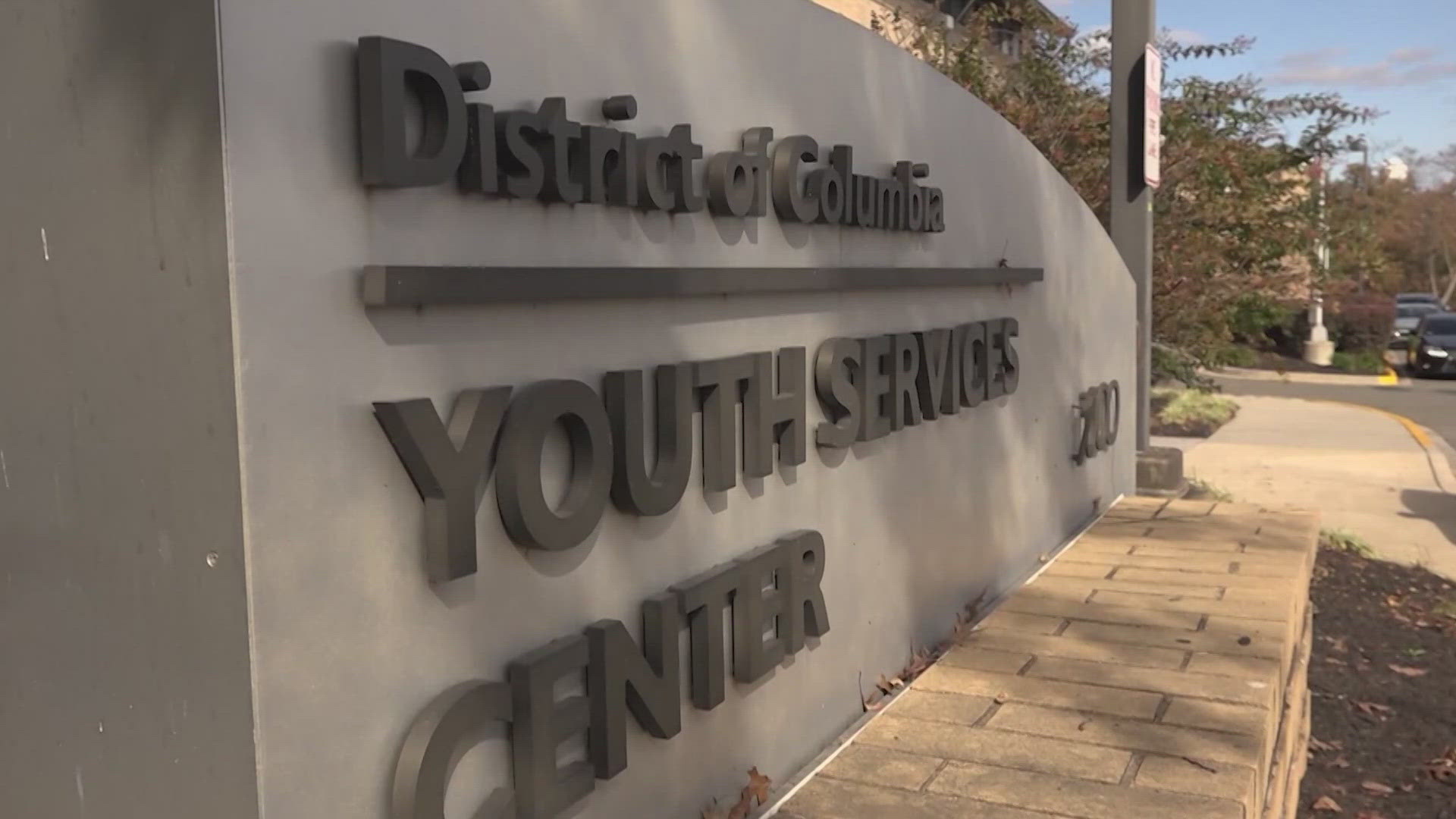WASHINGTON — A federal judge will consider whether the agency overseeing D.C.’s youth jail has violated two teenagers’ constitutional rights by allowing them to sit in the facility for months despite a court order directing them placed in a residential treatment facility.
U.S. District Judge Carl Nichols heard arguments Thursday during the first public hearing for a lawsuit filed by two 16-year-old boys currently detained at the Youth Services Center (YSC). Both boys were convicted of crimes earlier this year in D.C. Superior Court and ordered committed to facilities where they can receive rehabilitation not offered at YSC, which is meant as a holding facility for juveniles awaiting trial. According to the ACLU of D.C. and the D.C. Public Defender Service, one of the teens has been sitting at YSC for more than four months since a judge ordered him placed in a facility. The other has been waiting for nearly 200 days.
The teens’ attorneys argue the Department of Youth Rehabilitation Services, which oversees YSC and juvenile placements, has violated both D.C. statute and the Fourteenth Amendment of the U.S. Constitution by holding them at YSC. That both delays them from getting the care they need, and have been ordered by a judge to receive, and prevents them from beginning the step-down process which can allow them to return to their homes early.
“The District has been deliberately indifferent to these constitutional violations,” Aditi Shah, of the ACLU of DC, said.
Complaints about juveniles languishing at the city’s youth jail aren’t new. Last November, D.C. Superior Court Judge Andrea Hertzfeld threatened to hold Abed in contempt after nine different incidents where judges had ordered juveniles placed in a shelter house but found DYRS had put them in its lockdown facility, YSC, instead. DYRS director Sam Abed told Hertzfeld in December 2023 the agency was rushing to bring more shelter beds online as well as additional space at YSC to bring the total number of available beds to 98. Despite those efforts, DYRS data shows the city’s juvenile jail has spent much of the year at max capacity or beyond. An online dashboard made available by the agency shows YSC was completely full at 98 juveniles as of Wednesday.
Along with the lawsuit, attorneys for the juvenile plaintiffs filed a motion for a preliminary injunction in October asking Nichols to order DYRS to complete a list of demands, including ensuring that all juveniles at YSC currently awaiting placement had been relocated to an appropriate facility within 14 days. The requested injunction would also require DYRS to complete initial assessments and individualized treatment plans within timelines established by D.C. law. WUSA9 reported in July how the significant increase in juvenile crime had created a massive backlog in psychiatric evaluations that was dragging the process to a near-standstill for many children.
Attorneys for the District and DYRS oppose the injunction and say the lawsuit will fail to prove any constitutional violations. For one, they argued, D.C. statute sets out no timeframe by which juveniles must be placed in facilities following a judge’s order. Attorneys for the teens relied on a 30-day goal set by Abed, but were unable to give Nichols a fixed number of days at which detention would become unconstitutional.
Mirroring comments city attorneys have been in other venues, Amanda Pescovitz from the Office of the D.C. Attorney General told Nichols several elements of the placement process were out of DYRS’ hands. Most significantly, because D.C. has no juvenile residential treatment facility of its own, it must find spots in facilities operated in other states. Those states are under no obligation to take children from D.C., leading to some juveniles to be placed in facilities as far as Georgia.
Pescovitz also said a pre-commitment unit at YSC that was started in July to begin the process of finding placements for juveniles earlier is still in the process of ramping up.
“The reality is, whatever is within the department’s power to do, it’s doing,” Pescovitz said.
Throughout the hearing Thursday, Nichols questioned both sides about what authority he had to order DYRS to place the juveniles and why he shouldn’t delay ruling until the D.C. Council decides whether to pass a package of reforms proposed by D.C. Attorney General Brian Schwalb. The legislation, titled the Recidivism Reduction, Oversight and Accountability for DYRS Act of 2024 (ROAD Act), would implement many of the changes lawyers for the teens are seeking, including requiring DYRS to provide committed juveniles a treatment plan within 30 days, instead of the current 90. The ROAD Act would also create an auditor position independent of DYRS to oversee juvenile justice facilities in the District.
At the request of the District, Nichols heard some testimony about the specific needs of the two teens who filed the suit under seal. He concluded the hearing by taking the question of whether to impose the requested preliminary injunction under advisement, while acknowledging there was a very real concern about juveniles remaining for extended periods at YSC after their placement had been ordered.
“No one is suggesting YSC would be constitutionally appropriate to place these kids,” Nichols said. "It’s a waystation.”
Nichols gave no timeframe to make a decision on the injunction. The D.C. Council voted last month to advance the ROAD Act for further discussion. D.C. Mayor Muriel Bowser has said she opposes the bill in its current form and urged Council Chairman Phil Mendelson in a letter last month to table the bill.

